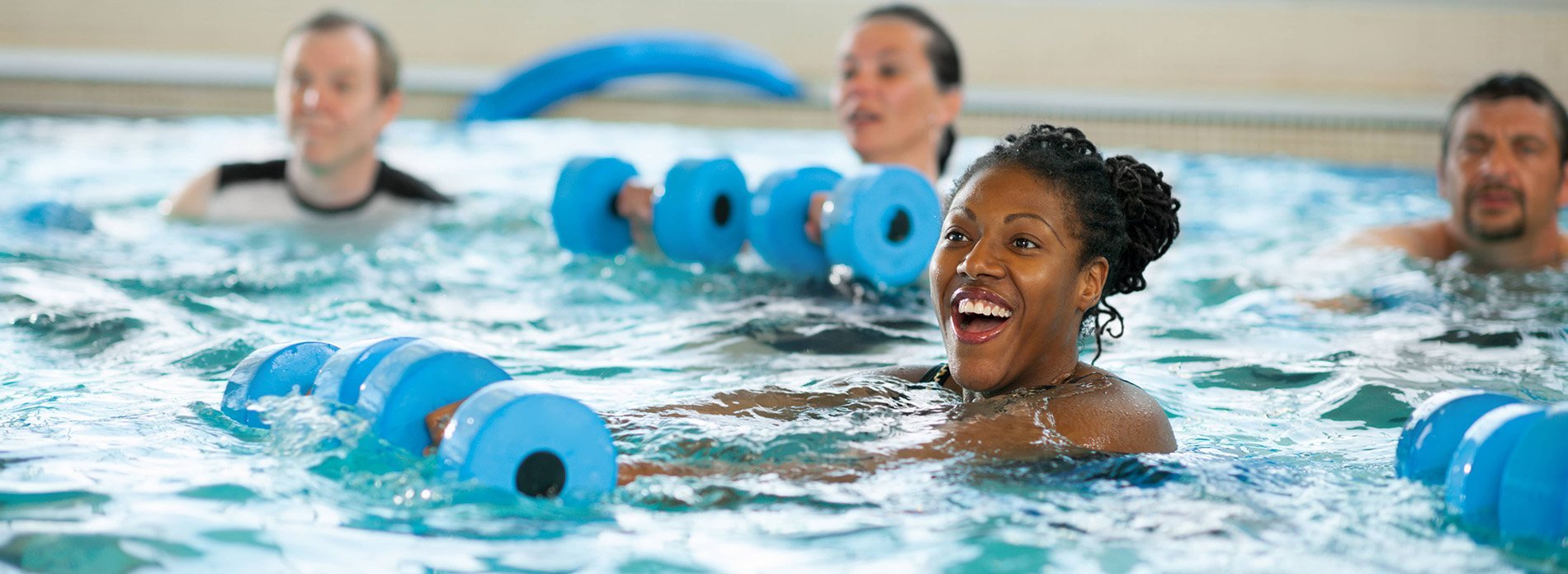Do you really have to wait to go swimming after eating?
We’ve all heard the classic childhood advice: “Don’t swim right after eating!” But is it dangerous? The simple answer is no. There’s no need to worry about swimming after eating. The idea that blood is diverted from your muscles to your stomach, making swimming risky, is an old myth. A healthy body can easily supply both digestion and movement. However, some people may feel more comfortable waiting a little after eating to avoid minor digestive discomfort.
For most of us, what’s far more important is simply making sure we have enough energy to enjoy our swim. Swimming is a fantastic full-body workout that engages your arms, legs, core, and back, while also providing a great cardiovascular challenge. To get the most out of your time in the water, eating the right foods before you swim can help fuel your energy and endurance.
Our AXA Health Mythbusters campaign revealed 38% of UK adults believe you should wait 30 minutes after eating before swimming.
What to eat before swimming
The best foods to eat before swimming provide a balance of carbohydrates, protein, and healthy fats. Here’s what to consider:
- Complex Carbohydrates: These provide a steady release of energy to keep you going. Examples include whole grains, fruits, and vegetables.
- Protein: This supports muscle repair and growth. Lean meats, fish, eggs, dairy, and legumes are great sources.
- Healthy Fats: For sustained energy, include options like avocados, nuts, and seeds.
- Electrolyte-Rich Foods: Foods like bananas, oranges, yoghurt, and sweet potatoes can help maintain hydration and energy levels.
Discover AXA Health insurance


Cost of health insurance
I'm interested in finding out more about health insurance costs.


Compare health insurance
I'm interested in getting more information to compare health insurance options.
Quick pre-swim snacks
If you’re heading for a swim within the next hour or two, you may opt for a lighter snack. These options provide fast-acting carbohydrates to fuel your workout:
- A banana or a small apple
- A granola bar
- A handful of dried fruit, like raisins or apricots
- A slice of whole grain bread with honey or jam
- A small serving of low-fibre cereal with milk
Meals before swimming
If you’re planning a larger meal, you could try to eat two or more hours before swimming to allow for digestion. Some balanced meal ideas include:
- Grilled chicken or fish with quinoa and roasted vegetables
- Whole grain pasta with marinara sauce and a side of steamed vegetables
- Brown rice with tofu or lean beef stir-fried with mixed vegetables
- A turkey or veggie burger on a whole wheat bun with a side salad
The timing isn’t set in stone. If your schedule doesn’t allow for planning, don’t stress! Many people swim shortly after eating without any issues. It’s far better to get moving than to skip exercise because you’re worried about the timing of your meals.
Staying hydrated while swimming
Even though you’re in water, swimming can still make you sweat, especially in heated pools or on sunny days. While it’s important to stay hydrated, for most people, drinking when you feel thirsty and paying attention to your body’s cues is enough.
For most casual swimmers, plain water is all you need. Sports drinks are useful only for longer or more intense swims.
Recovery after swimming
After a swim, refuelling with a combination of protein and carbohydrates can aid muscle recovery and replenish your energy stores. Good post-swim options include:
- A smoothie made with fruit, yoghurt, and a handful of spinach
- A whole grain sandwich with lean protein like turkey or tofu
- A small bowl of porridge topped with nuts and fruit
Benefits of swimming
Swimming is one of the best exercises for people of all ages and fitness levels. It’s low impact improves cardiovascular health, and builds strength.
By focusing on balanced meals, staying hydrated, and listening to your body, you’ll feel energised and ready for your next swim. Whether you’re swimming for fitness or fun, there’s no need to overthink or complicate your pre-swim routine. Just fuel up, stay hydrated, and dive in!
Explore more health myths with our AXA Health Mythbusters campaign.
Reviewed by Dr John Burke

Dr John Burke is our Chief Medical Officer for AXA Health, with over 25 years of experience as a GP. He was educated at Cambridge and Oxford Universities, where he pursued an interest in neuroscience. In his role he steers AXA Health's policy in areas such as evidence-based medicine, value-based commissioning, overdiagnosis and low-value care, service design, supply chain management and regulatory oversight.

